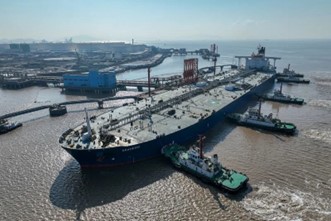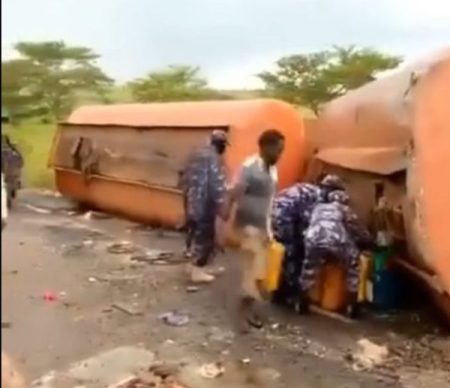
…Nigeria’s oil and gas industry ready for new era in safety – OPITO
Oscarline Onwuemenyi
16 July 2016, Sweetcrude, Abuja – Two new 35-meter offshore security patrol vessels for surveillance, intervention, and protection of offshore assets in the Gulf of Guinea have been delivered, to protect offshore oil and gas assets in Nigeria.
The Australian-based naval architecture firm, Incat Crowther, said on Friday that the two vessels named M/V Hezekiah and M/V Lady Dora were constructed by Veecraft Marine in Cape Town, South Africa, for an undisclosed client in Lagos, Nigeria.
The company said that the two vessels will protect offshore assets of the Nigerian AGIP Exploration (NAE) company and that the security patrol vessels can also provide replenishment of crews, fuel, and potable water to the NAE offshore facilities.
The move to increase the security of oil and gas of assets with offshore security patrol vessels comes at a time of volatility in Nigeria where militants have attacked oil workers and production facilities several times in recent months. The militant attacks have resulted in kidnappings, attacks on platforms and even deaths of oil workers in Nigeria.
Incat Crowther further noted that the propulsive power for the vessels is supplied by three Caterpillar C32 ACERT engines, each producing 1450hp at 2300 rpm. The vessels have a service speed of 25 knots while the electrical power is provided by two Caterpillar C4.4 generators and maneuverability is enhanced by a Hydro Armor Type 800 bow thruster.
Accommodation on the vessels provides space for 22 crew members and security personnel as well as 15 passengers. External decks provide space for transportation of supplies and also include armored positions for weapons installations.
The aft portion of the hull is fitted with an integrated rigid-hulled inflatable boat (RHIB) well with a hydraulically actuated transom door for easy deployment of an 8m fast rescue craft.
The pilothouse is constructed of ballistic resistance steel and windows to provide protection to NIJ Level III.
Meanwhile, Nigerian government officials and representatives from the country’s oil and gas sector have joined forces during a one-day seminar organised by OPITO to discuss how to make the country’s energy sector a safer place to work.
Over 70 attendees heard from speakers including, Head of Safety and Environment at the Department of Petroleum Resources (DPR), Mr. Onyebuchi Sibeudu, Mr.Mohammed Dewu from the Petroleum Technology Development Fund (PTDF); Musa Rabiu from the Nigerian National Petroleum Company (NNPC); and Amadi Amadi, S & E technical manager, Shell Nigeria.
OPITO, an international oil and gas skills organization whose safety training is taken by 250,000 people every year, was approached by the Nigerian government and oil and gas producers with the aim to improve the skills of local workers and develop the technical competence needed to carry out their roles safely.
As part of the event, oil and gas training providers looking to become OPITO-approved centers heard how they can train workers in Basic Offshore Safety Induction and Emergency Training (BOSIET) and International Minimum Industry Safety Training (IMIST), two of OPITO’s standards used by international and national oil and gas companies.
In a document obtained by our correspondent in Abuja, OPITO’s group chief executive David Doig said, “There is an increasing awareness in Nigeria of the value in ensuring the competency of the offshore workforce and the benefits of improving the levels of safety for each individual.
“At the event, we discussed the importance of standardising training across the oil and gas sector in Nigeria, as well as hearing how employing a successful OPITO-approved competency management system has helped to maintain and improve workforce skills, drive efficiencies and deliver cost benefits across a business while making a positive contribution to the local economy.”
He added that there are three training providers in Nigeria approved to deliver OPITO’s standards while another seven companies signed up for the workshop showing a commitment to adopt OPITO standards.
“This interest coupled with that of the government and international firms operating in the region sees Nigeria’s oil and gas industry ready for a new era in safety and competency,” Doig stated.
The country’s oil and gas sector has been under attack by a militants in the Niger Delta region, including the group known as Niger Delta Avengers. The group recently blew up Chevron’s platform in Nigeria’s oil rich Niger Delta.
Furthermore, oil giant Shell in May reportedly evacuated most of the workers from its Eja OML 79 offshore platform, and some of its workers from the nearby Bonga field, offshore Nigeria, following a security threat.



